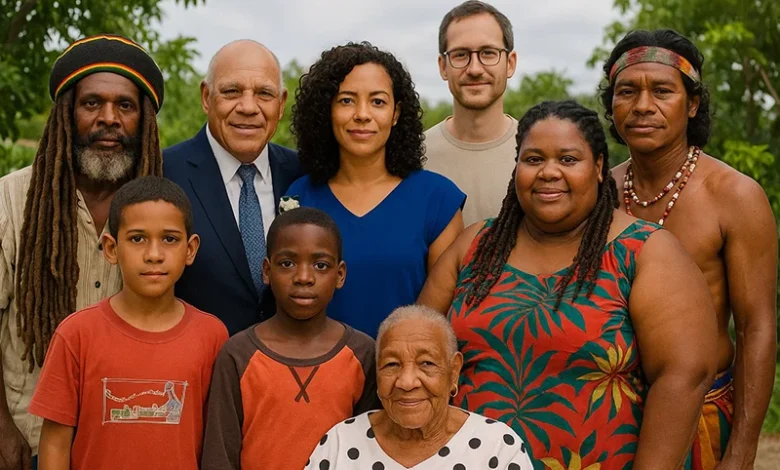Dominicans are from Dominica

Dominicans are from Dominica, a necessary clarification in a world where the name often sparks confusion. While it may seem like a minor mix-up, the distinction between Dominica and the Dominican Republic goes far deeper than geography. This entry examines the meaning of being Dominican, the history of the name, and the cultural pride associated with that identity.
Understanding the Name and the Confusion
The name Dominica originates from the Latin “dies Dominica,” meaning “Sunday,” the day the island was allegedly discovered by Christopher Columbus in 1493. On the other hand, the Dominican Republic derives its name from Saint Dominic. Despite the similarity in name, the two nations differ in language, colonial history, culture, and geopolitical alliances.
People from Dominica are Dominicans, pronounced with emphasis on the third syllable (Do-min-EE-can), while those from the Dominican Republic use the more familiar (Do-MIN-i-can). This phonetic variation, though subtle, marks a significant difference in national identity. It’s not merely about correcting pronunciation; it’s about asserting a distinct people, culture, and history.
Language, Culture, and Identity
Dominica is part of the Anglophone Caribbean, with English as its official language; however, Kwéyòl (Creole) remains a widely spoken cultural language. Dominicans carry a hybrid identity, shaped by African, Kalinago, and European heritage, which is reflected in local storytelling, cuisine, music, and religious expression.
Being Dominican means sharing in:
- A culture of resilience, honed through centuries of resistance to colonization and environmental hardship.
- A nation that celebrates Independence Day not with militarism, but with Creole Day, music festivals, and vibrant displays of traditional dress.
- A strong sense of community and rootedness, where small village life and extended kinship networks shape daily interaction.
Political Sovereignty and Historical Context
Dominica gained independence from Britain in 1978. Since then, Dominicans have built a sovereign parliamentary democracy and have forged strong relations with regional bodies like CARICOM and the Organization of Eastern Caribbean States (OECS).
In contrast, the Dominican Republic’s path included colonization by Spain, Haitian occupation, and later U.S. influence. This divergence has given rise to entirely separate legal systems, currencies, migration patterns, and educational models.
For example:
- Dominica’s Prime Ministers have included the late Rosie Douglas and Roosevelt Skerrit, with political structures modeled on Westminster-style governance.
- The Dominican Republic has a presidential republic, speaks Spanish, and shares the island of Hispaniola with Haiti.
The distinction is not only administrative but lived and experienced daily by Dominicans of Dominica.
Why the Distinction Matters
When Dominicans travel, study abroad, or engage in international dialogue, they often must clarify that they are not from the Dominican Republic. This repetitive correction highlights a lack of global awareness about small island nations and suggests deeper imbalances in visibility and representation.
This confusion:
- Affects international aid and diplomacy, where countries have been misidentified in official reports.
- Creates challenges for the Dominica diaspora, whose documents or applications may be flagged or misrouted.
- Reinforces a pattern where smaller Caribbean states are grouped or generalized, erasing their unique contributions.
For Dominicans, the phrase “We are from Dominica” becomes both a correction and a declaration of identity.
Cultural Markers Unique to Dominicans
To know a Dominican is to know:
- The sound of a lapo kabwit drum at village feasts
- The taste of bush tea and mountain fig
- The value placed on education, spiritual grounding, and agricultural independence
- A history that produced Kelleb Laurent, Edward Oliver LeBlanc, Jean Rhys, and Dr. Lennox Honychurch
It is a culture steeped in storytelling, humor, and a gentle but deep pride that doesn’t seek the spotlight, but refuses to be mistaken.
Why This Matters for Us
Dominicans are from Dominica. It’s a sentence worth repeating, not just to avoid confusion, but to honor a people whose identity is distinct, rich, and proudly Caribbean. In claiming the name, Dominicans also claim their place on the global stage, small in size but large in spirit.




